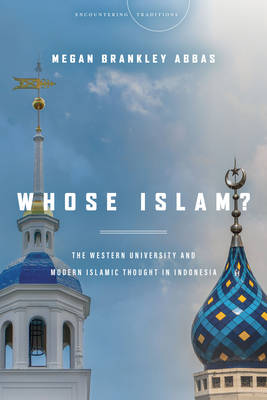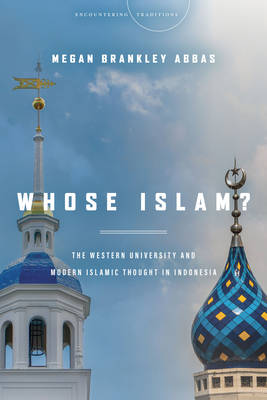
- Retrait gratuit dans votre magasin Club
- 7.000.000 titres dans notre catalogue
- Payer en toute sécurité
- Toujours un magasin près de chez vous
- Retrait gratuit dans votre magasin Club
- 7.000.0000 titres dans notre catalogue
- Payer en toute sécurité
- Toujours un magasin près de chez vous
Description
In this incisive new book, Megan Brankley Abbas argues that the Western university has emerged as a significant space for producing Islamic knowledge and Muslim religious authority. For generations, Indonesia's foremost Muslim leaders received their educations in Middle Eastern madrasas or the archipelago's own Islamic schools. Starting in the mid-twentieth century, however, growing numbers traveled to the West to study Islam before returning home to assume positions of political and religious influence. Whose Islam? examines the far-reaching repercussions of this change for major Muslim communities as well as for Islamic studies as an academic discipline.
As Abbas details, this entanglement between Western academia and Indonesian Islam has not only forged powerful new transnational networks but also disrupted prevailing modes of authority in both spheres. For Muslim intellectuals, studying Islam in Western universities provides opportunities to experiment with academic disciplines and to reimagine the faith, but it also raises troubling questions about whether and how to protect the Islamic tradition from Western encroachment. For Western academics, these connections raise pressing ethical questions about their own roles in the global politics of development and Islamic religious reform. Drawing on extensive archival research from around the globe, Whose Islam? provides a unique perspective on the perennial tensions between insiders and outsiders in religious studies.
Spécifications
Parties prenantes
- Auteur(s) :
- Editeur:
Contenu
- Nombre de pages :
- 280
- Langue:
- Anglais
- Collection :
Caractéristiques
- EAN:
- 9781503627932
- Date de parution :
- 08-06-21
- Format:
- Livre broché
- Format numérique:
- Trade paperback (VS)
- Dimensions :
- 150 mm x 226 mm
- Poids :
- 358 g

Les avis
Nous publions uniquement les avis qui respectent les conditions requises. Consultez nos conditions pour les avis.






